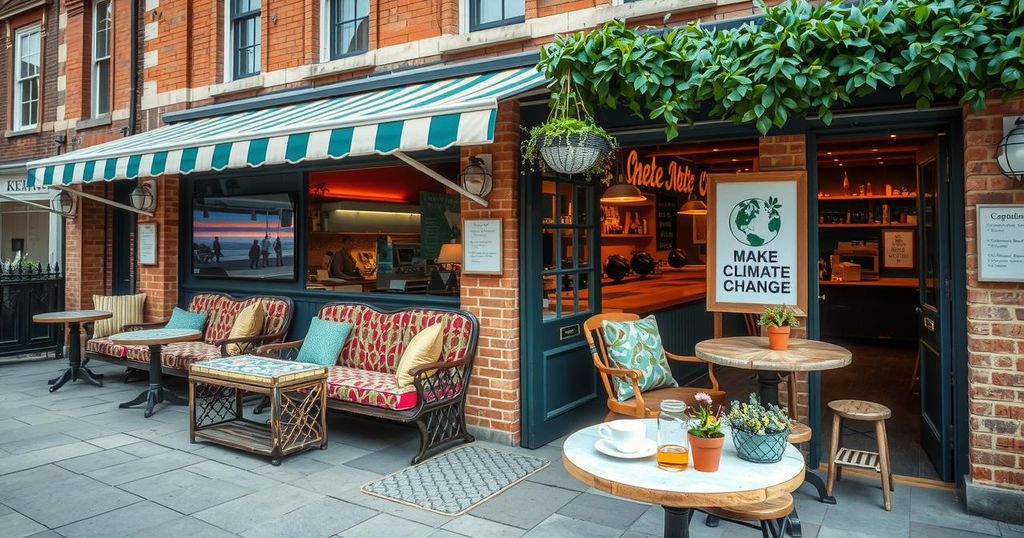Oxford’s Climate Cafes: Creating Community Connections on Climate Change

Oxford’s climate cafes, facilitated by Rebecca Nestor, encourage open discussions about climate change without immediate action or scientific debate. These gatherings help participants express emotions, create community connections, and alleviate feelings of helplessness related to climate issues. They have gained traction since 2018 and serve individuals across generations, promoting understanding and support.
In Oxford, climate cafes are emerging as forums for individuals to discuss climate change openly and without the burden of taking immediate action or debating scientific facts. Facilitated by Rebecca Nestor, these gatherings foster a sense of community and connection among attendees. They allow participants to express emotions such as anger and anxiety related to climate issues, thereby providing much-needed support and understanding among individuals of diverse ages and backgrounds. The cafes have gained popularity since their inception following the severe heat of the summer of 2018, where observable environmental changes prompted discussions about climate realities. Discussions steer clear of calling for direct action or discussing governmental policies, focusing instead on personal feelings and communal bonding, which has resonated deeply with attendees. Participants, including Bryony Parrish, find value in the ritualistic elements of the meetings, such as sharing personal connections with natural objects. These sessions are held bi-monthly at various local venues, aiming to alleviate the sense of helplessness many feel regarding climate change.
The concept of climate cafes is designed to address the emotional aspects of climate change, providing a safe space for individuals to share worries and uncertainties. As climate anxiety becomes increasingly prevalent, these cafes represent a novel approach to facilitate open dialogues and emotional support. Participants are often encouraged to reflect on their relationship with the environment without the added pressure of immediate solutions, enabling a more profound and supportive community connection during these discussions.
In conclusion, the climate cafes in Oxford serve an important role in addressing the emotional and communal aspects of the climate crisis. By providing a platform for open dialogue without the need for decisive action or scientific debate, they enable individuals to voice their feelings and experiences. This communal support may foster resilience and a sense of empowerment among participants, ultimately encouraging a deeper understanding of climate change and its impacts.
Original Source: www.bbc.com






